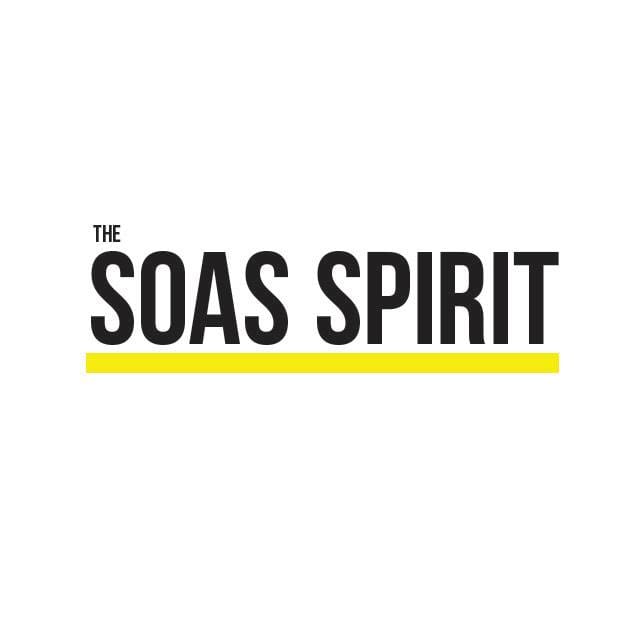Response to: Does the Political Correctness of Students' Unions Undermine their Decisions?

Sai Englert, NUS PGR rep
When I saw Luke McManus’ piece, Does the Political Correctness of Students’ Unions Undermine their Decisions? in the online edition of the SOAS Spirit, I almost stopped reading there and then. The juxtaposition of an attack on the ‘Political Correctness’ of unions with a picture of the train tracks at Auschwitz was so outrageous that I doubt even The Sun or the Daily Mail would have gone there.
But I read on. A friend had sent me the piece as yet another example of the attacks on Malia Bouattia, the NUS Black Students’ Officer, which have been flourishing in both student and mainstream media of late. The accusation, propagated by an NUS NEC member who found himself on the losing side of a vote, goes as follows: a motion was brought to the NEC condemning ISIS and offering solidarity to the Kurds. Bouattia spoke against the motion and branded those views as pro-Imperialist and Islamophobic. Everybody gets to scoff, laugh, and make clever jokes about identity politics and ‘political correctness’ gone mad.
Unsurprisingly, this is not what happened. The motion, which, I should say, I also voted against, called on NUS to boycott anybody with connections to ISIS and limited itself to express no-confidence in Western Imperialism. Bouattia spoke against the motion. Before doing so, however, she clarified that she thought it was important to support the Kurdish people in their struggle for liberation and against ISIS, and explained that she would draft a new motion for the next NEC. Bouattia, alongside the vast majority of the NEC, had two problems with the motion.
Firstly, it barely mentioned Western Imperialism at all, let alone the need for people in Britain to continue opposing the role our own government plays in the region. She pointed out that it was over a decade of Western military interventions that have created the current political climate in which ISIS can prosper and grow. In light of this, she thought it inappropriate to not make resistance to the continuation of these policies a central part of our task here in Britain. So far, so good.
Secondly, she argued that the call for NUS to boycott anybody with connections to ISIS was one we should consider carefully. Who in the student movement are those with connections to ISIS? Do we know them? Are there any? What is the evidence of this presence in our midst? The danger is that abstract calls like this, unconnected to the political reality on our campuses, reinforce the war on terror narrative used to justifiy Islamophobic attacks on Muslim students and Islamic societies by the state, such as the misnamed ‘Prevent’ initiative. Once again, pretty good.
The proposer of the motion, instead of understanding the concerns raised by a student who finds herself regularly on the receiving end of racism and Islamophobia, and constructively engaging with her, decided to publish half-truths about her and the debate. It is perhaps unsurprising, that insinuating that a nationally recognised, black, female, and Muslim union leader supports ISIS found a resonance in the current Islamophobic climate. This was found not only in right wing newspapers, but also Tommy Robinson (the former leader of the fascist English Defense League), who denounced Bouattia in truly shocking ways. Racist, sexist and threatening abuse has been directed at her and her close ones for weeks. Perhaps it is the lack of Political Awareness, rather than Political Correctness, which is threatening our unions and its activists?
But McManus’ article seems to be based on some dubious political awareness too. He writes that “in refusing to initially condemn ISIS and effectively set them apart from other Muslims, Bouattia arguably drew the Muslim community and ISIS closer together, under guise of avoiding islamophobic sentiment.” What a truly appalling statement. The author blames the Islamophobic equating of all Muslims and ISIS on an individual at the receiving end of these attacks. A classic story of blaming the victim: if only she had said the right words, at the right time, this wouldn’t be happening.
We have seen, for many years now, how the so-called war on terror is being mobilised to vilify and attack Muslim communities across Europe and North America. This kind of racist scapegoating has recently led French politicians to call on Muslims to show their political credentials by publicly denouncing ISIS. Take a moment and think: when is the last time any white or Christian community has been called upon to collectively denounce the acts of particular groups or individuals which happen to be white or Christian? This racist logic should be rejected by all students and staff in our institution. We should say that the only people who attempt to draw the Muslim community and ISIS closer are our states, our media outlets, and other racist organisations and individuals. We should then add that we stand with the victims of such racist narratives, and will continue to do so, at SOAS, in our communities, and everywhere else where they raise their heads.




